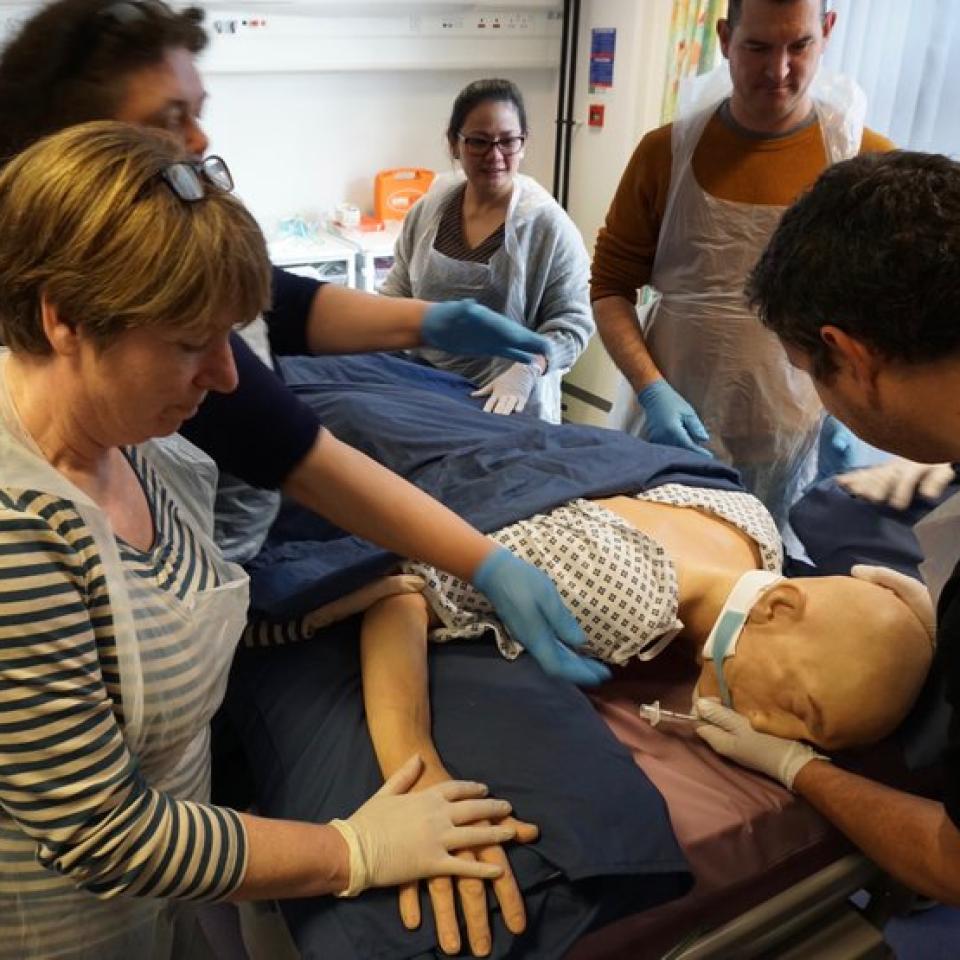
We are Together
Universities UK launched #WeAreTogether in April 2020 to showcase the ways universities across the UK helped during the Covid-19 pandemic.
From vaccines to treatments, working on the frontline to supporting local communities, Welsh universities played a critical role in fighting Covid-19.
The pandemic disrupted public life in ways never before seen in peacetime. Almost immediately, universities and their communities began responding to the crisis.
As the country went into lockdown, universities, their staff and students stepped up to contribute to research, offer support, and help people through the crisis.
Universities UK launched #WeAreTogether to highlight the ways in which universities supported frontline services and local communities during the pandemic. Case studies from around the UK were shared in the press and on social media.
Resources
The Open University in Wales worked with the Welsh Government and Careers Wales through Working Wales to make a wide range of free learning available to workers who have been placed on furlough during the lockdown period. The Open University has over 1,000 free short courses, videos, tutorials and other resources on its free online learning platform, OpenLearn, which helped workers improve their skills, learn new skills, and maintain their personal well-being while not working.
Medical equipment and facilities
Cardiff University joined forces with global defence equipment manufacturer Hard Shell to produce up to one million fluid-resistant masks a day. With assistance from the Welsh Government, specialist machinery was brought from overseas to assist in the development and production of masks at a Cardiff factory. The masks were produced for health, social care and other key workers in Wales and the rest of the UK.
Bangor University’s sports and leisure facilities were converted into a temporary hospital to provide beds for patients with Covid-19 symptoms. Around 250 additional beds were made available to the NHS at Canolfan Brailsford as part of the partnership between the University and Betsi Cadwaladr University Health Board.
Training videos were filmed in the University of South Wales’ Clinical Simulation Centre to demonstrate how to use ventilators and CPAP (Continuous Positive Airway Pressure). These videos were used to train frontline staff.
Training and expertise
Wrexham Glyndŵr University and Bangor University teamed up to create a three-day course to train 200 extra intensive care staff to support the Covid-19 response. The reinforcements completed a fast-track course to start working on the frontline across the Betsi Cadwaladr University Health Board’s three hospitals.
University of Wales Trinity Saint David’s innovative research and design centres, The Assistive Technologies Innovation Centre (ATiC) and The Centre for Advanced Batch Manufacture (CBM) Wales provided intensive support for a newly established consortium – SWARM (The South Wales Additive and Rapid Manufacturing Consortium) in its mission to support NHS Wales’ Covid-19 response. SWARM was set up to coordinate available industry, manufacturing and design capacity, in South Wales, to support the NHS supply chain
Research
Researchers from Aberystwyth University worked on a technique to improve testing for Covid-19 in low income countries.
Swansea University students devised and developed a new rapid-release gas treatment for ambulances to reduce the current turnaround time to deep clean a vehicle. The treatment can remove Covid-19 contamination from surfaces and the air in under twenty minutes, removing human cleaning intervention
Community support
Bangor University, the University of South Wales, Cardiff University and Swansea University provided over 2000 students nurses, midwives and paramedics to help on the frontline of the pandemic.
Cardiff Metropolitan University staff walked the distance from Cardiff to Baku (some 3000 miles) where the first Wales Football Euro would have taken place if not for the outbreak, raising funds for the Wallich, a charity supporting the homeless in Cardiff.
Proud to Help
Launched on 30 June 2020, Proud to Help shone a spotlight on the individual staff and students who went the extra mile to help others during the pandemic.
This stage of the campaign provided an opportunity to thank all the staff and students at UK universities who stepped up, volunteered, fundraised, and so much more during the Covid-19 pandemic.

